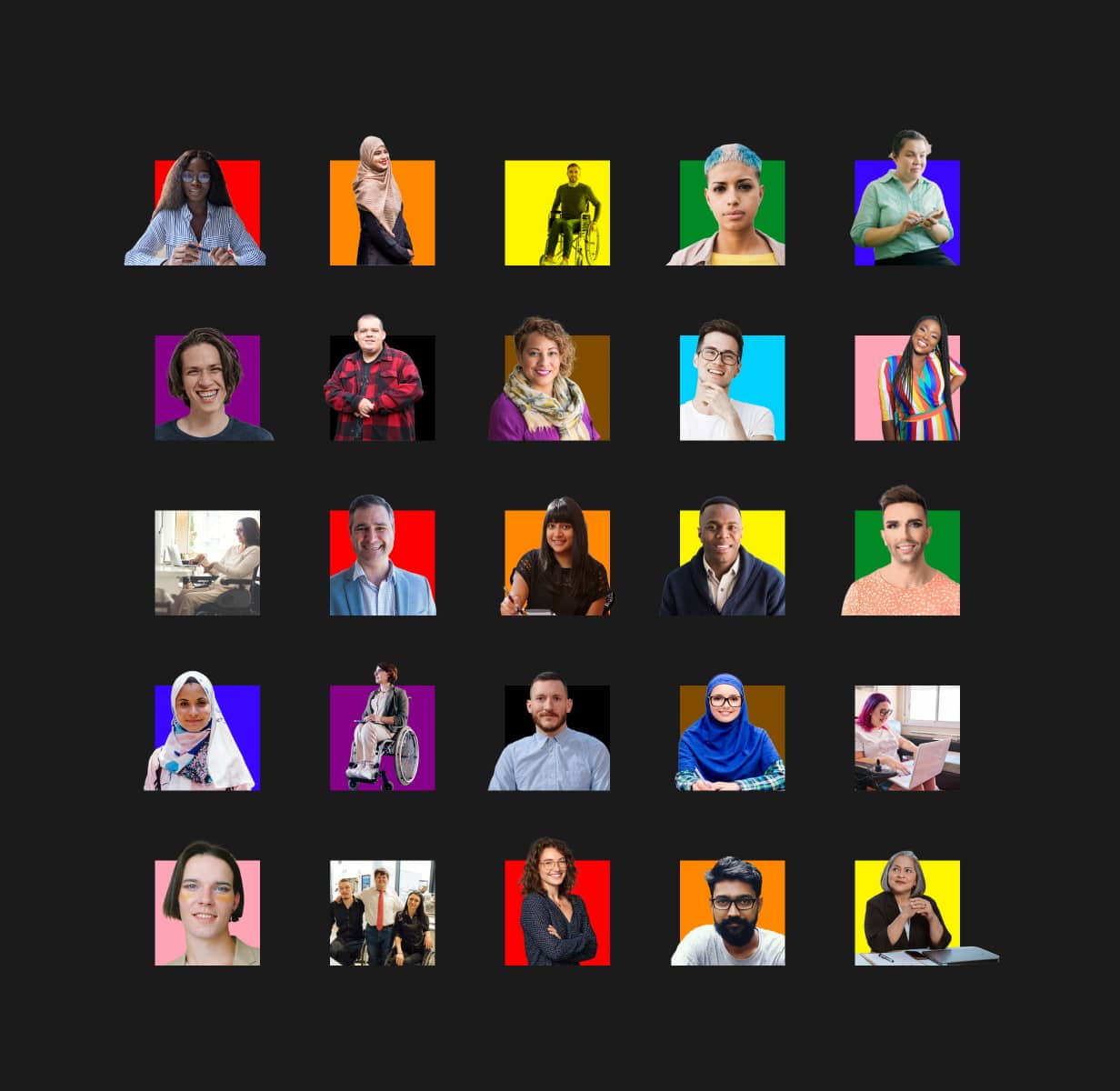Recruiting
Acorn by Synergie is within the top 1% of the UK's leading recruitment agencies.

Request a callback
Looking for recruitment support? Get in touch.

Experience
Established in 1992, we have over 30 years continuous experience within the sector.

Geographic coverage
We have in excess of 30 branches, offices and on-site locations within the UK and are part of Synergie Group which operates in 17 countries and have 800 offices globally.

Scale
We have over 160 employees and a UK turnover in excess of £100 million.

Temporary Recruitment Solutions
We recruit up to 6,000 temporary workers into 1,200 different client companies every week.

Permanent Recruitment Solutions
We successfully recruit circa 1,800 permanent employees for clients within the private and public sector each year.

Executive Search
S&You Executive Search is an extension of Acorn by Synergie. S&You Executive Search partner with orginisations across the public, third sector and corporate industries to hire the absolute best in class. Find out more https://www.sandyou.co.uk
Services we offer
How we help businesses like you
Established in 1992, we have over 30 years’ experience across the sectors that we operate in.
We have in excess of 30 branches, offices and on-site locations in the UK alone, and are part of Synergie Group who operate globally in 17 countries.
Here in the UK, we have over 160 employees and have a turnover in excess of 100M.
We offer a range of bespoke services tailored to your needs:
- Dual branded collateral and campaigns
- Proven candidate attraction campaigns
- Successful retention techniques
- State of the art technology
- Highly experienced implementation team
- In-house award-winning marketing team
- Quality & Compliance Department
- A collaborative partnership approach
- Recruitment with integrity guaranteed
Our Executive Search team is well placed to deliver a comprehensive campaign that ensures any senior requirement is managed and promoted effectively to achieve the best quality, volume and diversity for you to hire from. We will guide you through the process, whilst delivering a robust search and a personalised, supportive experience.
Harnessing tomorrow’s technology - we offer a suite of software solutions to fit your business needs. Acorn By Synergie Plus offers an MI real time reporting system, which enables you the client access to a bespoke dashboard and KPI tracker.
Understanding the talent landscape and utilising the most up-to date technology is key to our success. We have invested in market leading talent analytics tool, Horsefly. This provides us with real time worker insights, allowing us together, to recruit the talented individuals you require.
You can have complete confidence in us, as your specialist recruitment partner.
The quality of the recruitment solutions we provide are essential and that’s why we are dedicated to achieving highly reputable industry recognised Accreditations and Awards to acknowledge and represent the professional standards we meet and exceed through our services, internal process and people.
Candidates successfully placed in job positions
of our clients return to us for their recruitment needs
Revenue we have generated per year
Discover more with our friendly video guide
Finding your way is incredibly simple. Press play, answer the questions, and find what you’re looking for.
Local. National. Global.
With more than 30+ offices and on-site locations across the UK and internationally, Acorn by Synergie employs expert consultants within specialist industries and is part of the leading global recruitment group, Synergie. We provide local recruitment support on a national level with an international reach.

Powered with Synergie
We're part of the Synergie Group operating in 17 countries worldwide.
A leader in global human resources management — placing 70,000 job seekers into work every week.
- €3B turnover
- Over 800 branches
- 5,000 employees

Our Accreditations
S&You Specialist Recruitment
S&You is Acorn by Synergie's specialist and executive recruitment division. S&You’s mission is to make workplaces the best they can be by bringing exceptional candidates and industry-leading organisations together.
Discover more
Industry insights through Technology
Understanding the talent landscape
Within the UK we utilise Horsefly, a market leading talent analytics tool, that provides real-time worker insights, we will work with you to undertake searches for multiple roles to identify where we can provide the talented professional you require.
Discover more
Latest news

Insights
Spring clean your career

Recruiting
Mark Rudge celebrates 25 years at Acorn by Synergie

Jobseekers
Acorn by Synergie Plymouth is named by Seetec Pluss as its recruitment agency of the year

Wellbeing
Battling the Blues on Blue Monday

Jobseekers
Top Tips for Finding Your Dream Job on Blue Monday

Insights
Returning to work after maternity leave?

Insights
Harry Lambert appointed as Divisional Manager for Trades and Labour in the South West

Insights
What transferable skills do you have to offer?

Community
We are now an Opening Doors inclusive employer!

Community
Carbon Net Zero

Recruiting
Acorn by Synergie launches new brand S&You

Jobseekers
Tricks and treats for a successful job search

Recruiting
Acorn Recruitment rebrands to Acorn by Synergie

Recruiting
£30,000 raised for Mind

Insights
Top tips for picking the right recruitment agency

Jobseekers
A graduate's guide to landing your first job

Community
Reconstruct Network

Recruiting
Pall invests £60 million in Ilfracombe creating 200 jobs

Reconstruct Network
Working to bridge construction industry gender gaps

Recruiting
Acorn by Synergie supports Newport’s Llanmartin Primary

Community
3rd annual CEO Kickabout

Mark Rudge celebrates 25 years at Acorn by Synergie
Acorn by Synergie appoints new Sales Director

Community
Acorn by Synergie staff get set to swim the English Channel for our chosen charity, When You Wish Upon A Star

Insights
Stay safe! How to avoid scams when job-hunting

Wellbeing
Acorn by Synergie praised for supporting emotional wellbeing of its employees

Community
Key4Life Award Scheme

Insights
Tips for video interviews

Community
Acorn launches Building Services Division

Jobseekers
An insight to working at OGM

Insights
Reflecting on my first year with Acorn: Managing Director Bernard Ward

Community
Acorn by Synergie and Edenstone Group join forces to cycle the length of a nation in just two days
Recruiting
Acorn appoints Group Head of HR amid ongoing growth

Jobseekers
6 top tips for getting your CV seen online

Recruiting
Winners crowned at Wales HR Awards 2022

Recruiting
Jodie Tate has been appointed as the new Recruitment Manager for North Wales at leading UK recruiter, Acorn.

Community
Acorn by Synergie joins forces with HM prison services and construction businesses to help people with convictions find work

Recruiting
Acorn appoints Richard Hilliard as its first ever Internal Recruitment Consultant

Recruiting
Howmet Aerospace Exeter marks half a century with new recruitment partnership

Recruiting
New Managing Director for leading recruiter Acorn

Community
Acorn Operations Manager rows and skis his way to a £5000 fundraising target

Community
Leading Acorn team recognised as Responsible Business Champions Cymru 2020

Community
Acorn partners with EnCon's The Career Changers - Women into Construction Project

Recruiting
Acorn awarded place on public services supplier framework

Insights
Best Practice | How Acorn advises an applicant to attend an interview

Recruiting



















